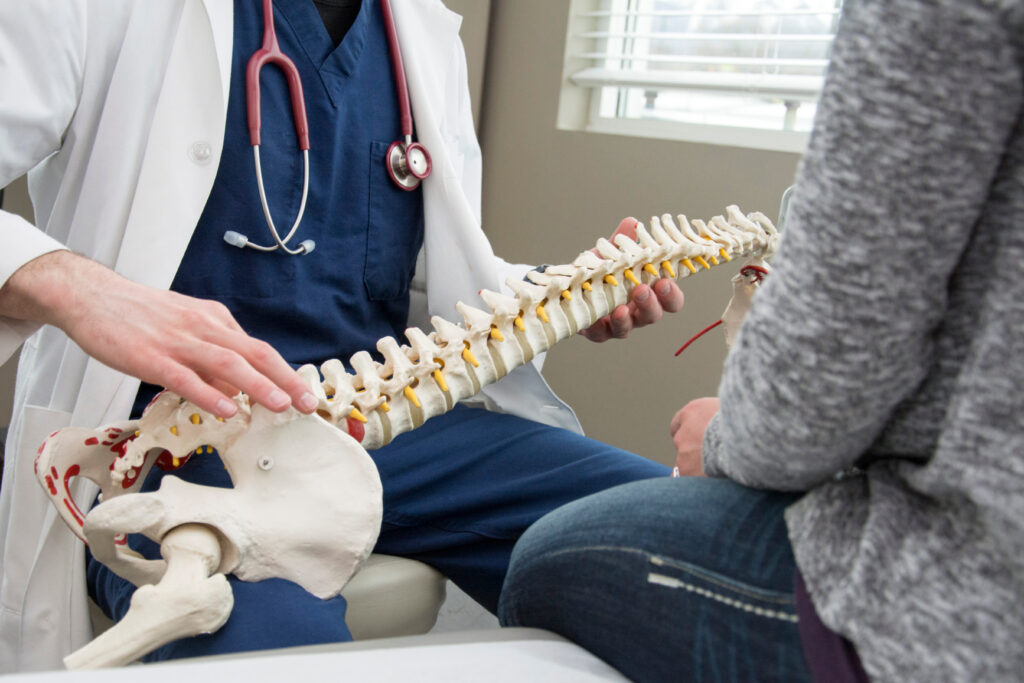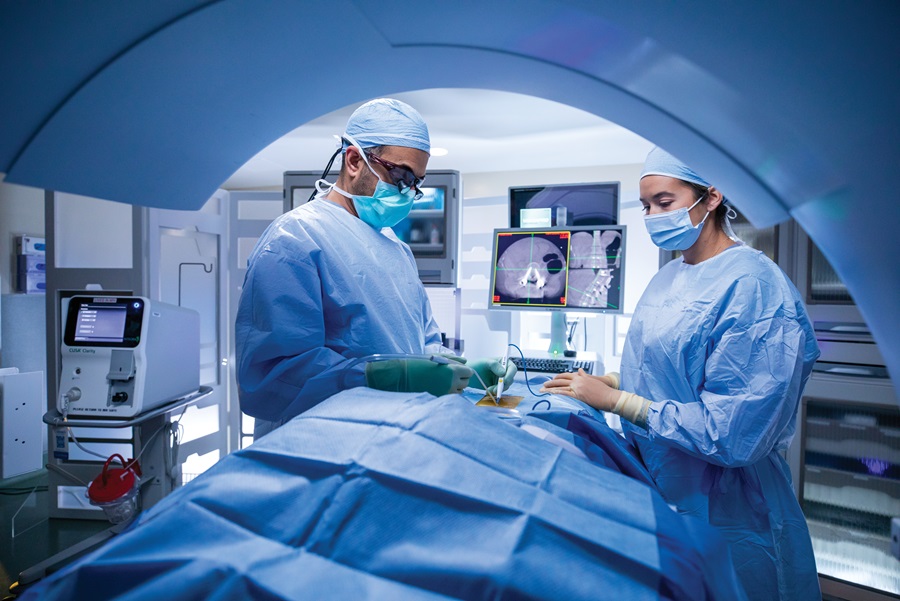Connecting with the Best Spine Surgeons in St Louis MO for Comprehensive Care
Connecting with the Best Spine Surgeons in St Louis MO for Comprehensive Care
Blog Article
Discovering the Reasons Behind Needing Back Surgical Treatment for Numerous Conditions
The requirement for back surgery occurs from a selection of problems that can significantly harm a person's lifestyle. Frequently encountered issues such as degenerative disc illness, herniated discs, and spine constriction frequently materialize as persistent discomfort and debilitating signs. In most cases, when conservative treatment options show inefficient, people might find themselves pondering medical intervention. Understanding the particular signs that call for surgical factor to consider is vital for both patients and doctor. The effects of these problems expand much past instant pain relief, inviting further evaluation into the complexities of spine health management.
Typical Back Problems
Usual spinal column conditions incorporate a selection of conditions that impact the vertebral column and its affiliated frameworks. Among the most widespread conditions are degenerative disc disease, herniated discs, back stenosis, and spondylolisthesis. These disorders can bring about considerable pain and useful restrictions, impacting the top quality of life.
Degenerative disc illness occurs when the intervertebral discs shed hydration and elasticity, causing minimized disc height and raised spine instability. Herniated discs arise when the internal gel-like material of a disc protrudes or leaks via its outer layer, often pressing nearby nerves. Back stenosis is identified by the narrowing of the back canal, which can result in push on the spine and nerves. Spondylolisthesis includes the variation of one vertebra over one more, possibly causing nerve compression and discomfort.
Various other conditions such as scoliosis, defined by an unusual side curvature of the back, and osteoarthritis, which influences the facet joints, likewise add to spine-related issues. Each of these conditions might demand varying treatment techniques, consisting of conservative administration or medical treatment, relying on the severity and effect on the individual's day-to-day tasks.
Symptoms Indicating Surgical Treatment
Symptoms that might show the demand for back surgical procedure can develop from the numerous spinal column problems talked about previously. Clients frequently experience relentless pain that does not enhance with conservative treatments, such as physical therapy or drug. This discomfort can manifest as local discomfort in the back or radiate to the limbs, recommending nerve participation.
Additionally, pins and needles, tingling, or weak point in the legs or arms can signify nerve compression, which might require surgical intervention to stop more neurological deterioration. An additional crucial sign is loss of bladder or bowel control, usually indicative of cauda equina syndrome, a medical emergency requiring prompt medical evaluation.
Sometimes, people might also report substantial difficulty in performing daily activities due to instability in the back or devastating pain. These useful limitations, together with dynamic signs, require a comprehensive analysis by a back specialist.
Ultimately, when conservative actions fall short to minimize symptoms and top quality of life is significantly influenced, surgery may be taken into consideration to restore function, alleviate discomfort, and prevent long-term problems. It is important that people experiencing these symptoms look for specialist medical recommendations promptly.

Non-Surgical Treatment Choices
Countless non-surgical treatment choices are readily available for individuals experiencing spine-related problems, intending to alleviate pain and boost functionality without the need for intrusive treatments. These therapies can be tailored to the particular problem and severity of symptoms.
Physical therapy is commonly a first-line strategy, concentrating on enhancing core muscle mass, boosting flexibility, and enhancing overall spine wellness. Hand-operated treatment techniques, such as chiropractic adjustments, can likewise supply relief by straightening the spinal column and lowering tension.
Medications, including non-steroidal anti-inflammatory medications (NSAIDs) and muscle mass relaxants, may be prescribed to manage pain and inflammation. Additionally, corticosteroid shots can supply targeted alleviation to influenced locations, especially for problems like herniated discs or spine stenosis.

Different therapies, such as acupuncture and massage therapy, have actually obtained popularity for their potential to lower pain and promote healing. Way of living adjustments, including weight monitoring and ergonomic modifications, play an important function in long-term back health and wellness.
For some patients, spinal decompression treatment or transcutaneous electrical nerve stimulation (TENS) may supply alleviation by reducing stress on spinal nerves and stimulating nerve feature, respectively. Jointly, these non-surgical options give a detailed approach to taking care of spine-related conditions.

Benefits of Spine Surgical Procedure
While non-surgical therapy options can successfully take care of many spine-related problems, there are circumstances where surgical treatment becomes needed to achieve optimum outcomes. One of the key benefits of back surgery is the capacity for significant pain alleviation. Conditions such as herniated discs, spine constriction, and degenerative disc disease can cause debilitating discomfort that might not respond to conventional therapies. Surgical intervention can directly attend to the source of the pain, supplying long-term relief.
In addition, back surgery can restore performance and enhance top quality of life. Several patients experience enhanced wheelchair and lowered constraints in day-to-day tasks following successful procedures. This repair of feature is critical for individuals seeking to return to work, engage in recreational activities, or simply enjoy everyday tasks without discomfort.
Moreover, spine surgery can prevent further complications linked with untreated spinal problems. By resolving concerns proactively, people might prevent much more severe health troubles that can arise from development of their back problem. Generally, the benefits of spine surgery expand past pain relief, encompassing boosted flexibility, improved high quality of life, and the prevention of future problems, making it a vital alternative for lots of individuals facing substantial spine-related obstacles.

Healing and Rehabilitation Refine
The healing and recovery process adhering to spinal column surgery is crucial for making certain ideal outcomes and improving the overall top quality of life for clients. Effective healing begins quickly after the procedure, concentrating on pain monitoring, wheelchair, and injury care - best spine surgeons in st louis mo. Medical care suppliers generally advise a mix of physical therapy, medicine, and steady return to everyday tasks to facilitate healing
People are frequently encouraged to adhere to a structured rehab program customized to their details surgical treatment and specific demands. This may include targeted workouts to reinforce the core and back muscles, enhance adaptability, and restore performance. Adherence to the suggested recovery protocol is necessary, as it can dramatically reduce the risk of problems and advertise much faster recuperation.
It is also important for individuals to keep open communication with their healthcare team throughout the healing procedure. Normal follow-up consultations enable the monitoring of progress, modifications to rehab strategies, and resolving any issues that may occur. Eventually, a detailed healing and rehab method not just help in physical healing find more information yet also sustains psychological health, encouraging individuals to gain back self-reliance and return to their preferred i was reading this tasks with self-confidence.
Final Thought
In final thought, understanding the factors for spine surgical treatment is essential in resolving debilitating problems that affect high quality of life. Inevitably, spinal column surgical treatment can recover function and enhance total wellness, emphasizing the importance of timely analysis and intervention for affected people.
The necessity for spine surgical treatment occurs from a range of conditions that can badly impair a person's quality of life. The implications of these conditions expand much beyond prompt pain alleviation, welcoming more exam into the intricacies of spine health monitoring.
Signs that might indicate the site demand for spinal column surgery can develop from the numerous spinal column conditions reviewed previously.Additionally, spinal column surgical treatment can protect against more complications associated with unattended spinal conditions.In verdict, understanding the factors for spine surgery is essential in attending to debilitating problems that influence high quality of life.
Report this page